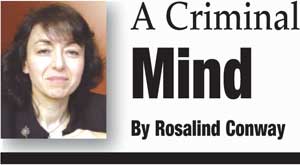What is a justice system if it is not just? When the little guy is on trial against the state for the lion’s share of his life, do we all not expect even-handedness so that we will not have more David Milgaards and Donald Marshalls?

I recently spent seven weeks out of town representing a client charged with a double homicide. The prosecution team consists of three Crown attorneys and four main detectives. One detective sits in court doing file management, two interview witnesses, and a fourth one is responsible for the flood of electronic disclosure.
I have no junior, no articling student, no assistant - full stop, because this is a preliminary hearing, and Ontario’s legal aid plan cannot afford that anymore.
In a notorious local Ottawa sex slaying, which is being prosecuted by no less than the Crown attorney for Ottawa, Hilary McCormack, assisted by a second Crown, again no junior counsel was authorized for the preliminary hearing.
A Legal Aid Ontario area director told me they have trouble getting senior lawyers to take on murders. I know why: they value their health, their sanity, and their practices.
One senior lawyer told me that he has done three legal aid murders, but no more - the third one was draining, he lived it, he breathed it, he fantasized about addressing the jury while he was in the shower, and, once it finished, he realized he had lost many of his other clients.
In Ontario, basically three types of cases are covered by legal aid certificates. There are the garden variety cases, such as a simple break and enter or an assault, where, if the lawyer exhausts the permitted hours, he requests “discretion,” (i.e. a sympathetic account examination at LAO’s head office in Toronto). There are the “big case management” cases, where the local area director for legal aid meets with the lawyer because it looks like the bill will top $20,000 or $30,000 for a murder.
Finally there are the colossally big cases that are expected to exceed $75,000 that go to the “exceptions committee.” These are complex murders, gangs-and-guns cases and other conspiracies. In these two latter types of cases the exceptions committee sets a budget, allowing a fixed amount of preparation, and authorizing whether or not there will be a junior, a private detective, paid travel, and so forth.
My client was charged in 2005. I presented written materials to the exceptions committee in June of last year and again at the beginning of September. The preliminary hearing, which was set to go for a month and a half, was starting on Jan. 2. On Dec. 1, I finally received my budget for the preliminary hearing, but there was no longer time for me to do all the hours that they had finally authorized.
There is, of course, a subtext. LAO cannot handle the cost of all of these mega-trials, and I learned that the budget I was issued on Dec. 1 was going to be the last one before LAO was going to stop issuing these exceptions committee budgets altogether. That would have inevitably led to a raft of payment applications. I heard that this was exactly what LAO wanted, because then the province would have had to step forward to bail the plan out.
LAO’s announced cutback on big criminal trials was postponed on Dec. 1, with the establishment of a working group, but it is back on as of March 1, and caps are expected to be set for these mega-trials, no matter how long they go. So counsel accepting murders and complex conspiracies should realize that there is a realistic prospect that they will have to bring a Rowbotham application.
Pity the poor accused. Pity his over-burdened champion. Lawyers do not deserve to be burnt out by the system, and clients are entitled to experienced and prepared counsel. Legal aid is, after all, the state, and we don’t want the state to institutionalize unjustness. The state chooses whom it prosecutes and so it must live up to its responsibility to provide the resources for their defence.
Shame. Shame. These cases must be funded at the earliest possible stage.
Rosalind Conway practises criminal law in Ottawa. She can be reached at [email protected]

 I recently spent seven weeks out of town representing a client charged with a double homicide. The prosecution team consists of three Crown attorneys and four main detectives. One detective sits in court doing file management, two interview witnesses, and a fourth one is responsible for the flood of electronic disclosure.
I recently spent seven weeks out of town representing a client charged with a double homicide. The prosecution team consists of three Crown attorneys and four main detectives. One detective sits in court doing file management, two interview witnesses, and a fourth one is responsible for the flood of electronic disclosure.